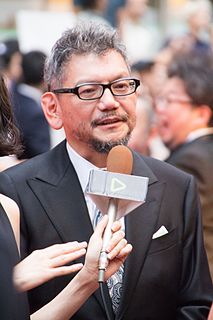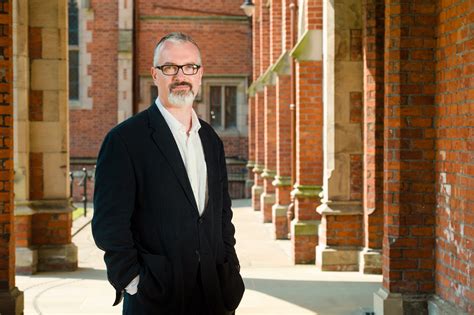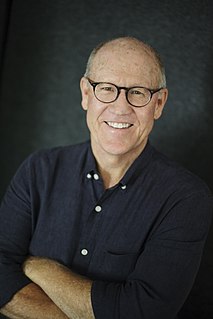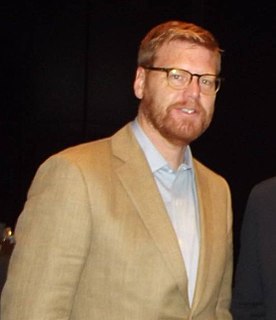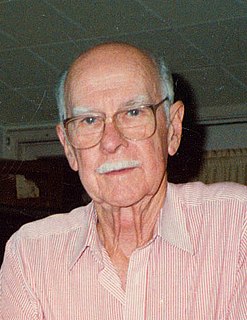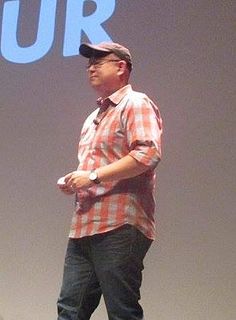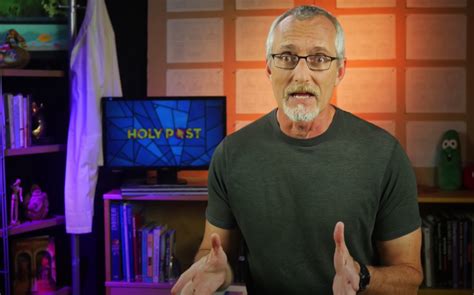A Quote by Hideaki Anno
Evangelion is like a puzzle, you know. Any person can see it and give his/her own answer. In other words, we're offering viewers to think by themselves, so that each person can imagine his/her own world. We will never offer the answers, even in the theatrical version. As for many Evangelion viewers, they may expect us to provide the 'all-about Eva' manuals, but there is no such thing. Don't expect to get answers by someone. Don't expect to be catered to all the time. We all have to find our own answers.
Related Quotes
We may not know when or how the Lord's answers will be given, but in His time and His way, I testify, His answers will come. For some answers we may have to wait until the hereafter. This may be true for some promises in our patriarchal blessings and for some blessings for family members. Let us not give up on the Lord. His blessings are eternal, not temporary.
I don't think the world is the way we like to think it is. I don't think it's one solid world, but many, thousands upon thousands of them--as many as there are people--because each person perceives the world in his or her own way; each lives in his or her own world. Sometimes they connect, for a moment, or more rarely, for a lifetime, but mostly we are alone, each living in our own world, suffering our small deaths.
Get people talking. Learn to ask questions that will elicit answers about what is most interesting or vivid in their lives. Nothing so animates writing as someone telling what he thinks or what he does - in his own words. His own words will always be better than your words, even if you are the most elegant stylist in the land.
If someone's lying to us, then it's rare that we know that they're lying to us. It's only in bad films that you recognize immediately that an actor's playing in such a way that you can see that he's lying, and that's simply dumb. But to reach that, it requires that you make a film in such a way that a spectator feels compelled to find his own explanation. You want to lead the spectator to find his own interpretation. To ask questions rather than provide all of the answers. Doing that leads to open endings and open dramaturgy.
We can expect God to provide everything necessary to make worship possible. We children of God must ever be dependent upon God, for we have no resources of our own. We are as impoverished in worship times as a baby unable to provide its own bottle at feeding time. God, the object of our worship, also becomes the inspiration of that worship. He has imparted His own Spirit into our hearts to energize that worship. All that is due Him comes from Him. His glorious Person evokes admiration for and honor of Him, as He imparts His nature into me.
Others of us are lost. We're forever seeking. We torture ourselves with philosophies and ache to see the world. We question everything, even our own existence. We ask a lifetime of questions and are never satisfied with the answers because we don't recognize anyone as an authority to give them. We see life and the world as an enormous puzzle that we might never understand, that our questions might go unanswered until the day we die, almost never occurs to us. And when it does, it fills us with dread.
Sometimes it's more generous to take than give, he said. "How?" Caroline asked. "To let the other person give you what he has to offer. If you're always the one giving, you never have to feel disappointed, because you don't expect anything in return. But it's miserly in its own way. Because you never leave yourself open or give the other person a chance.
If we pray only because we want answers, we will become irritated and angry with God. We receive an answer every time we pray, but it does not always come in the way we expect, and our spiritual irritation shows our refusal to identify ourselves truly with our Lord in prayer. We are not here to prove that God answers prayer, but to be living trophies of God’s grace.
It is not humility to insist on being someone that you are not. It is as much as saying that you know better than God who you are and who you ought to be. How do you expect to arrive at the end of your own journey if you take the road to another man's city? How do you expect to reach your own perfection by leading somebody else's life? His sanctity will never be yours; you must have the humility to work out your own salvation in a darkness where you are absolutely alone.
